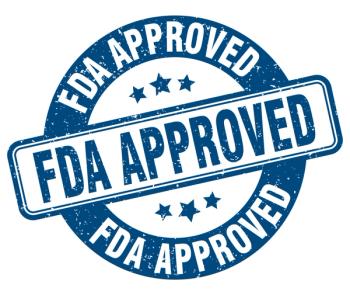
With FDA Approval, Vonoprozan Offers Options for Nonerosive GERD
The approval offers a first of its kind treatment option for patients living with nonerosive GERD.
The FDA has approved vonoprazan (Voquenza) 10 mg tablets for relief of heartburn associated with nonerosive gastroesophageal reflux disease (GERD) in adults.1 This represents the third FDA approval for vonoprazan; the drug is also approved to treat erosive esophagitis or erosive GERD and Helicobacter pylori infection, in combination with antibiotics.
Approval was based on positive results from the PHALCON-NERD-301 study (NCT05195528), a phase 3, randomized, placebo-controlled, double-blind, multicenter, US-based study evaluating the efficacy and safety of daily
Results of PHALCON-NERD-301 were positive: Vonoprazan demonstrated quick and significant reduction in heartburn through week 4, including all-day, all-night heartburn relief, “with significantly more 24-hour heartburn-free days through week 4” vs placebo. Mean percentage of heartburn-free days in the treatment group was 45% (vs 28% in placebo), with a median of 48% of 24-hour heartburn-free days (vs 17% in placebo). Study results were presented earlier this year at
READ MORE:
“For decades, [individuals with GERD] had no new class of treatment to turn to in the US,” said Terrie Curran, president and CEO of Phathom Pharmaceuticals. “This approval provides patients and health care providers with immediate access to the first and only FDA-approved treatment of its kind, from a new class of acid suspension therapy, and the power to help provide complete 24-hour heartburn-free days and nights.”
“Millions of patients with nonerosive GERD continue to suffer from heartburn despite current treatment options,” added Colin W. Howden, MD, professor emeritus at the University of Tennessee College of Medicine. “The pivotal study that led to this approval showed that Voquenza significantly reduced heartburn episodes in patients with nonerosive GERD along with an established safety profile.”
The most common adverse events included abdominal pain, constipation, diarrhea, nausea, and urinary tract infection. During the 20-week extension period, adverse events also included upper respiratory tract infections and sinusitis.
More than 65 million Americans are living with GERD, approximately 70% of whom have nonerosive GERD. Symptoms—including episodic heartburn, regurgitation, problems swallowing, and chest pain—can impact an individual’s overall quality of life.
READ MORE:
Reference
Phathom Pharmaceuticals announces FDA approval of Voquenza (vonoprozan) tablets for the relief of heartburn associated with non-erosive GERD in adults. News release. Phathom Pharmaceuticals. July 18, 2024. Accessed July 18, 2024.
https://investors.phathompharma.com/news-releases/news-release-details/phathom-pharmaceuticals-announces-fda-approval-voqueznar-0 Laine L, Spechler S, Yadlapati R, et al. Vonoprazan is efficacious for treatment of heartburn in non-erosive reflux disease: a randomized trial. Clin Gastroenterol Hepatol. Online ahead of print. Published May 14, 2024. doi:10.1016/j.cgh.2024.05.004
Newsletter
Pharmacy practice is always changing. Stay ahead of the curve with the Drug Topics newsletter and get the latest drug information, industry trends, and patient care tips.























